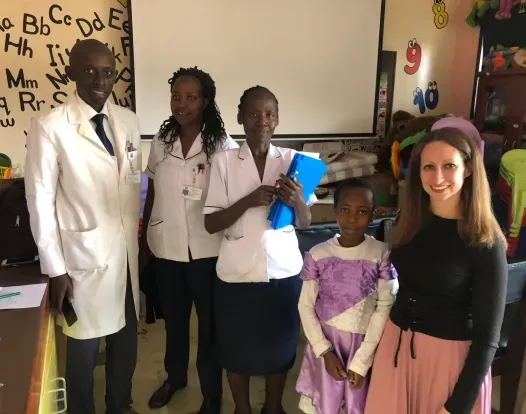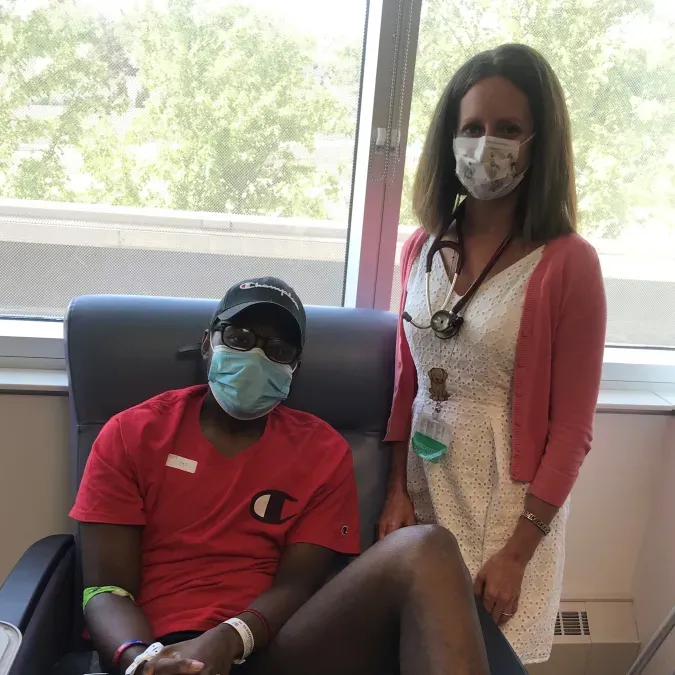These researchers dedicate their careers to finding new treatments and cures for people with cancer.

“Funding from this grant has allowed trainees from Kenya to come to the U.S., which has greatly strengthened bi-continental relationships,” explains Dr. Libes, “… and given the Kenyans ideas on how to improve care [for] their own patients and families.”

Breaking Barriers
While data collection is still underway, Dr. Libes anticipates more children in LMICs will survive cancer.
Barriers to care in LMICs often include late diagnoses, financial constraints leading to treatment abandonment, lack of available drugs, and inadequate medical education.
The training given to Kenyan health care providers is expected to improve caregiving and family education, encouraging more patients to follow through with prescribed therapies. As they shadow Dr. Libes and her team, the trainees witness the personal joys of healing young patients.
Marking Milestones
“I have the privilege of getting to know amazing children, adolescents, and young adults who place their trust in me,” reflects Dr. Libes, recalling a late patient whose high school graduation was held in the hospital.
In his speech, the graduate – who had been treated for sarcoma for six years – joked that they had shared so much, Dr. Libes even knew his Taco Bell order.
“After a tenuous month, I was so thankful that he was able to graduate and happy that I was able to hear that lighter moment. It showed the relationship we had formed. [It was] gratifying to know that he knew how much support he had, to know that he had a whole team of people pulling for him,” explains Dr. Libes.
Remembering this patient’s life empowers Dr. Libes to continue conquering cancer for patients everywhere. “And as an oncologist, it’s such an honor to be part of those moments.”

